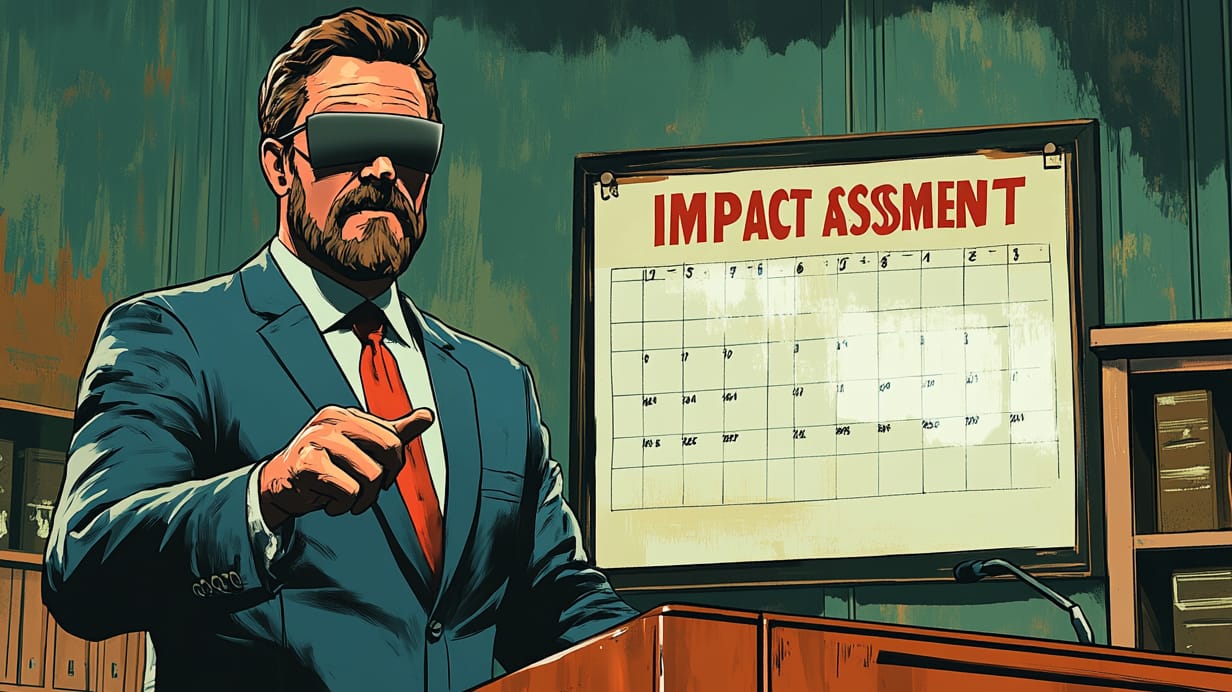In what can only be described as a masterclass in evidence-based policymaking, it appears our esteemed Members of Parliament will be voting on sweeping disability benefit cuts without actually knowing their full impact. Who needs analysis when you have confidence, after all?
According to The Guardian, Britain's economic watchdog won't publish its forecast of the employment impact of these cuts until the end of October – conveniently after MPs are expected to vote on the legislation in July. It's the governmental equivalent of buying a house blindfolded and being told you can inspect it three months after you've completed the purchase.
The Crystal Ball Approach to Policymaking
The Department for Work and Pensions' own impact assessment predicts these cuts will drive at least 300,000 people into poverty, including 50,000 children. But fear not! Ministers assure us that those affected could simply "avoid poverty by finding work," helped by a £1bn disability employment support package.
What work, exactly? For whom? Under what conditions? With what accommodations? At what pay rate? In which sectors? Near their homes or requiring lengthy commutes?
Minor details, apparently.
The Office for Budget Responsibility (OBR) was unable to assess how effective these employment support measures might be, citing a curious lack of "policy or analysis detail" and "insufficient time." Odd, that.
Coming Soon to Benefit Hero: The Clairvoyance Upgrade
We're pleased to announce that in our next game update, we'll be introducing a new feature called "Parliamentary Clairvoyance," where players can vote on major life-altering changes without knowing what they actually do. Simply click "Aye" or "Nay" based on what your party whip tells you, and find out months later how many NPCs you've driven into poverty!
It's a fun minigame where the only winning move is to be wealthy enough not to care.
The £1bn Mystery Box
The government's £1bn disability employment support package is the policy equivalent of a mystery box. It could contain anything! Jobs! Training! Support! Or possibly just a series of increasingly stern letters telling you that your "attitude toward work" needs improvement.
When Labour MP Neil Duncan-Jordan asked for details about how many people would be helped back into work and how the £1bn would be spent, he was told that "further analysis to support development of the proposals in the green paper will be developed and undertaken in the coming months."
Translation: "We'll figure it out after you've voted for it. Trust us!"
Historical Precedent: A 3% Success Rate
For those who enjoy pesky things like "evidence" and "facts," the OBR previously forecast that just 3% of those affected by the last government's now-abandoned plans to restrict disability benefits would find paid work.
Three percent.
Not thirty percent. Not thirteen percent. Three.
But this time will be different, surely. This time the £1bn will work magic that previous efforts couldn't. This time disabled people won't face discrimination in hiring processes, workplace accommodations will materialize out of thin air, and employers will suddenly overlook gaps in CVs due to health conditions.
No Time for Consultations, We're in a Hurry
There will be no formal public consultation on the main cuts themselves, although the government is generously consulting on "transitional" protection for those hit by the PIP cuts. Because nothing says "we value your input" like asking how quickly you'd prefer to fall into poverty.
Some cynics suggest that avoiding public consultations and using primary legislation are ways for the government to minimize the risk of legal challenges – especially after the last government's consultation on disability benefit cuts was ruled unlawful earlier this year.
But that's probably just a coincidence.
Benefit Hero's New Crisis Event: "Evidence? What Evidence?"
Watch out for our upcoming crisis event where your benefits are suddenly cut based on a report that doesn't exist yet. Defend yourself by using our new "Parliamentary Questions" defense mechanism, which generates beautifully worded inquiries that will be answered three months after your character has been evicted.
The Bottom Line
In all seriousness (just for a moment, we promise), what we're witnessing is a perfect example of the absurdity our game satirizes – systems designed without proper consultation with the people they affect, policies pushed through before their impacts are understood, and assumptions about employment that don't match reality.
As MP Rachael Maskell put it: "To force through policy change without a full analysis is not only poor governance, but does not seek to assess whether a policy would be effective."
Or as we might put it in Benefit Hero: "Click here to completely redesign the system. Don't worry about what happens next, we'll tell you in October."
Benefit Hero is a satirical game that pokes fun at bureaucratic systems, not the people caught in them. When real policy decisions echo our satire this closely, even we have to wonder if someone in government has been using our game as a how-to manual rather than the cautionary tale it was intended to be.
